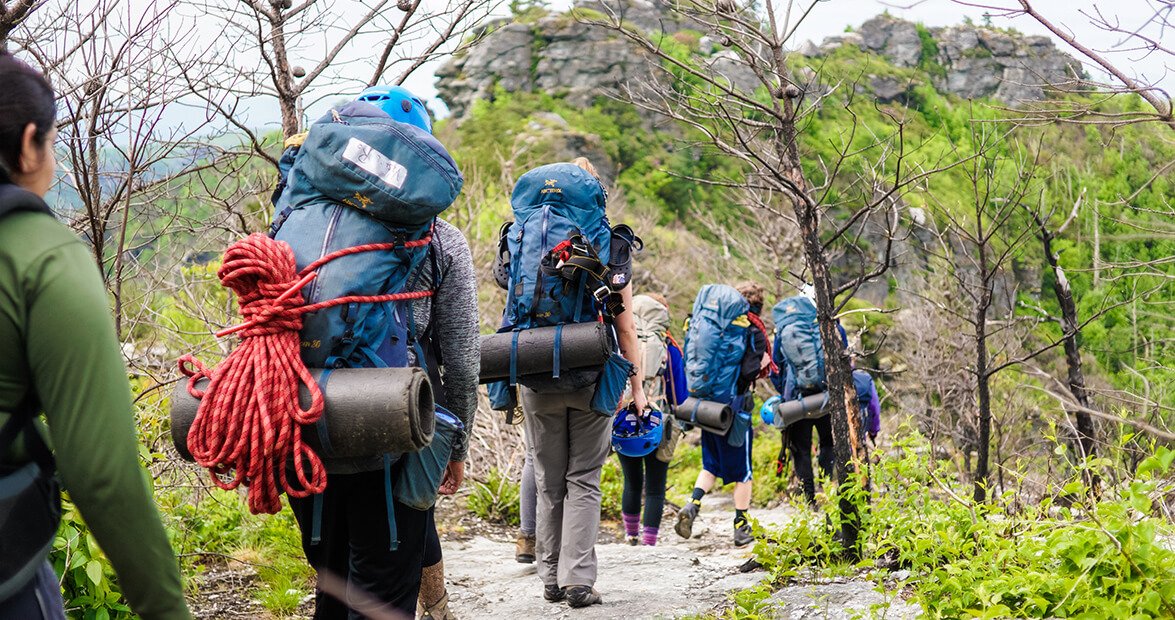By Dori Bergman, Administrative Assistant
Your comfort zone is like a lifeboat in a sea of unknowns. It’s defined as the level at which you function with ease and familiarity, or a psychological state where you feel in control of the situation. Yet most people’s life purpose and passion lies outside of their comfort zone.
So why do we choose to stay comfortable? New experiences cause almost everyone to feel anxious. There are a lot of things we don’t do because we’re afraid of failing. But leaving your comfort zone is not about getting rid of that fear, it’s about feeling scared and doing it anyways. Fear doesn’t go away. It just gets easier.
Senninger’s Learning Zone Model
Why is it important to experience fear? German adventure pedagogue Tom Senninger developed the Learning Zone Model to show how people learn by stretching their limits. While your comfort zone can give you a space to return to and reflect, the learning zone is where you make new discoveries that allow you to grow.
How does this work? Engaging in new activities strengthens the connections between brain cells and generates new neurons. This process of creating neural pathways in response to life challenges and experiences is called neuroplasticity. You can promote neuroplasticity by pushing yourself into moderate levels of stress. In “The Relation of Strength of Stimulus to Rapidity of Habit-Formation” (1908), psychologists Robert Yerkes and John Dodson proved a relationship between stress and performance. When stress level is slightly higher than normal, in a state called “Optimal Anxiety,” people perform better. This is known as the Yerkes-Dodson law. Similarly, endocrinologist Hans Selye coined the term eustress: beneficial stress that leads to a positive response. Neurobiology shows that you remember information better when it’s tied to an emotion. I believe you learn best when you are being challenged.
Yerkes-Dodson Law
Here's where the outdoors come in.
Through physical, social and emotional risk-taking, outdoor activities offer a safe and supportive environment to expand your comfort zone. Maybe you haven’t spent an extended amount of time in the wilderness, or engaged in rigorous activity like backpacking or rock climbing. Or maybe you are an expert! Even the most experienced people do not have control over the environment. From freezing rain to heavy snow, you are constantly overcoming adversity in the outdoors.
Additionally, the serenity of nature provides a unique opportunity to reflect on your experience. Without the fast-paced distractions of everyday life, you can slow down and connect with yourself. With this clarity comes new perspective.
Kolb’s Experiential Learning Cycle
Outdoor educator David Kolb explains the four stages of learning in his Experiential Learning Theory. After a novel and unfamiliar experience, you reflect on that experience, transfer your knowledge, and then seek out more new experiences. Kolb’s theory is simple: Every time you succeed in something you didn’t believe you could do, you develop a stronger sense of self and this growth extends to all areas of life.
John Dewey and Kurt Hahn both agreed that experience-based learning is the best way to learn about yourself. Dewey was the most significant American philosopher of the early 20th century. He said, “all genuine education comes about through experiences” (Dewey, 25) and advocated for hands-on learning. Kurt Hahn, who is considered the grandparent of adventure programming, applied Dewey’s beliefs about experience to the natural environment. He also added an emphasis on challenge.
Hahn joined forces with Laurence Holt to create Outward Bound in 1941. Outward Bound students “overcame their disability” through rigorous challenges outside (Veevers 71). These included physical challenges to build confidence and self-discipline, but also moral challenges to give students responsibility and make them feel needed. Through problem-solving (such as setting up camp or cooking dinner in the rain), the outdoors can foster a sense of self-reliance and resourcefulness. Hahn also emphasized failure as an integral part of the experience and saw it as an opportunity for growth. The inherent risk in outdoor activities allows people to make mistakes and learn from them.
All great adventures, from hiking or camping to mountain biking or white-water rafting, require courage and perseverance. Embracing these challenges can expand your comfort zone through resiliency, self-discovery, and personal growth. Completing each challenge can build self-confidence. And lastly, the simplicity of nature offers a space for deep inner reflection. This leads to more new experiences!
Outdoor experiences have the power to change your pattern thinking, thus allowing you to gain new knowledge into yourself and the world around you. The lessons you learn in nature are transferrable to all aspects of life.
Sign up now for our nature-based programs this summer!





